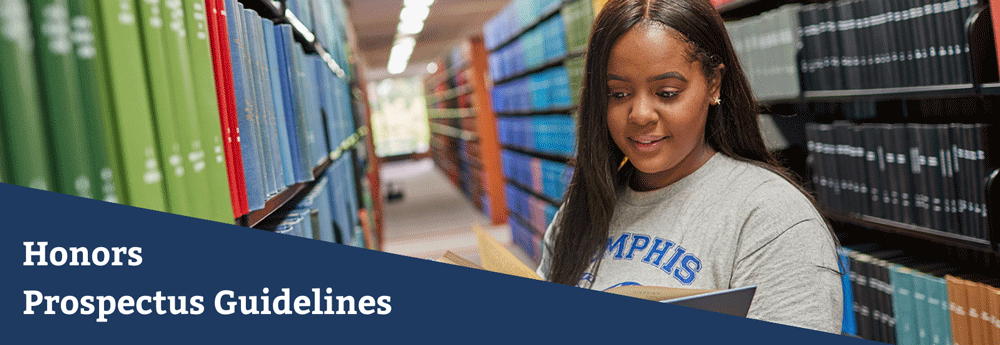English Honors Prospectus Guidelines
The prospectus is due the last day of classes in the Spring semester for students completing work in the Fall semester or the last day of classes in the Fall semester for students completing work in the Spring semester.
 Thesis Prospectus Guidelines:
Thesis Prospectus Guidelines:
Please note that the prospectus is not a contract but a plan of research. Later, you may wish to change its shape with the approval of the Honors Committee and your Director. All prospectuses must include the following sections:
- A working title (subject to change) and the names of your Director and Secondary Reader.
- A short description (2 or 3 paragraphs) of the subject matter and aims of your research (what you are interested in studying, and why and how your approach will provide an original contribution to the field). For creative writing projects, describe the themes you want to develop, including (if you wish) their personal relevance.
- A short description (1 or 2 paragraphs) of your research methods--theoretical or applied, traditional literary criticism and history or fieldwork. If you are doing research requiring interviews or questionnaires, describe how these will be conducted.
- A working outline of the contents of the thesis, including a short (1 paragraph) description of the contents of each
chapter or section. Possible arrangements include--but are not limited to--the following:
- An introduction (5-10 pages), two short (10-15 page) chapters and a conclusion (approximately 5 pages).
- A brief introduction (less than 5 pages) and three longer (10-12 page) chapters.
- Three longer (10-12 page) chapters and a brief conclusion.
- Four closely related chapters, the first introducing the subject and the final one concluding it (but with no separate introduction or conclusion).
- For creative writers: a 5-9 page introduction to the theory and methods behind the work, including a short bibliography, followed by a series of interrelated poems or short stories or a longer work of creative fiction. If you are writing historical fiction or non-fiction, the introduction can be shortened since more attention will be given to researching your material.
- A bibliography of prospective research materials, gleaned from the online catalog, databases, and tips from your Director. See the research librarian if you do not know how to use the MLA Bibliography, the primary data base most of you will want to consult. It includes up-to-date materials you may want to order from Interlibrary Loan if they are not available from McWherter Library. At least 10 items in your bibliography — the sources you anticipate will be most important for your thesis — should be annotated.


